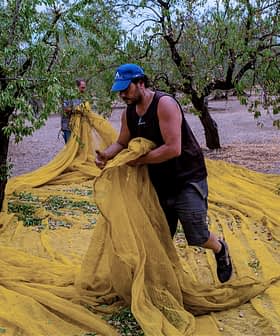The dreaded Xyllela fastidiosa bacterium which is blamed for the infection of tens of thousands of olive trees in southern Italy has been detected for the first time in France.
Earlier this month, the French government imposed import restrictions on plants originating from the Salento region of Apulia (Puglia) over fears that it may spread to France.
The French agriculture ministry’s fears have been realized with the detection of a coffee plant infected by Xyllela fastidiosa at a market in Rungis, a suburb of Paris. The minister of agriculture announced that the infected plants were confiscated from a wholesale market near Paris and that they entered the EU via the Netherlands from central America, allegedly the same route taken by the bacterium which has affected olive trees in Apulia.
Authorities are investigating the exact origin of the infected plants and considering the next steps to be taken to control a possible outbreak.
In a January 2015 study, the European Food Safety Authority (EFSA) warned that the Xyllela fastidiosa bacterium can spread to other countries in the European Union (EU) and cause significant crop damage and loss.
The bacterium is spread by insects and cannot be eradicated by current means without killing the infected plant.






